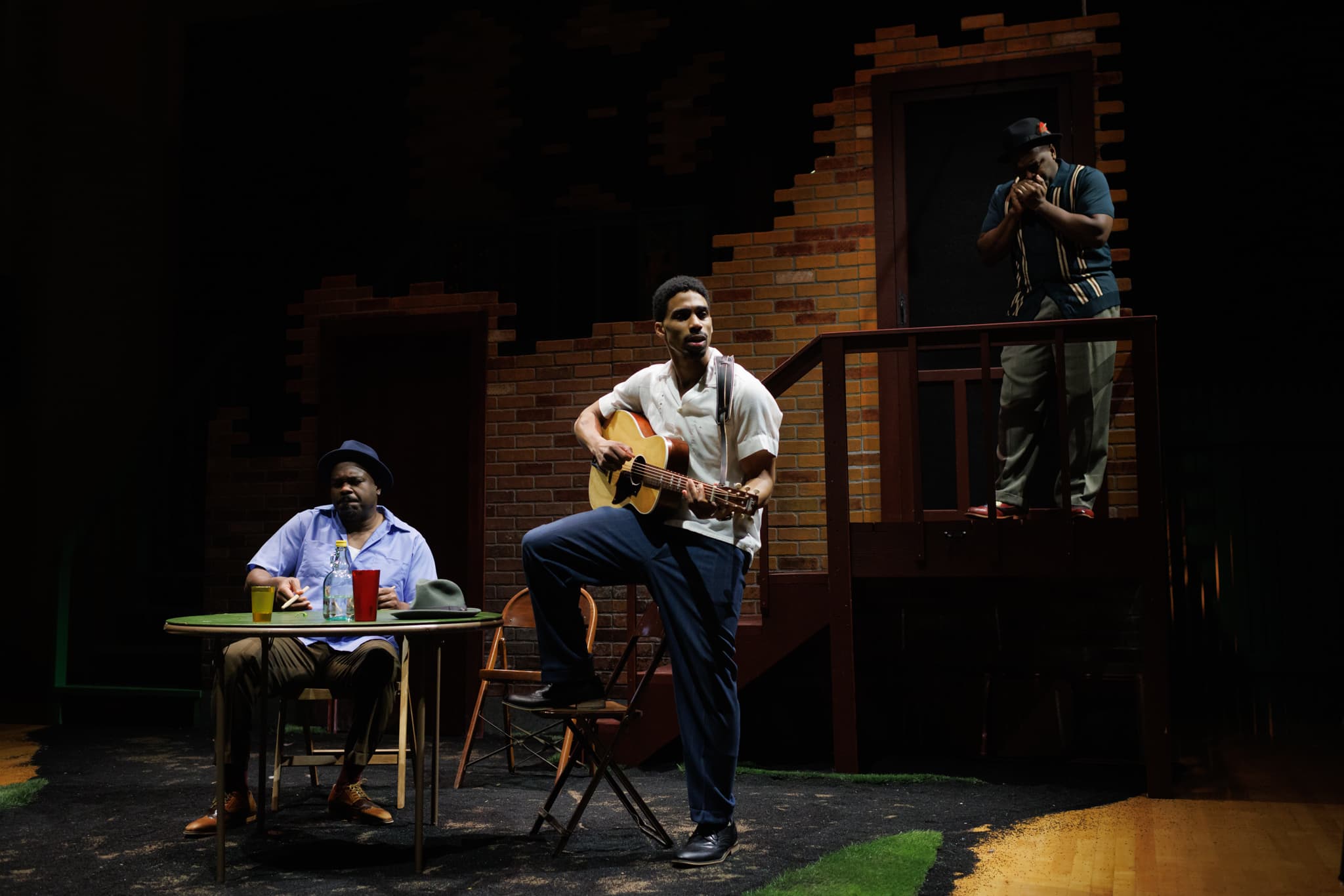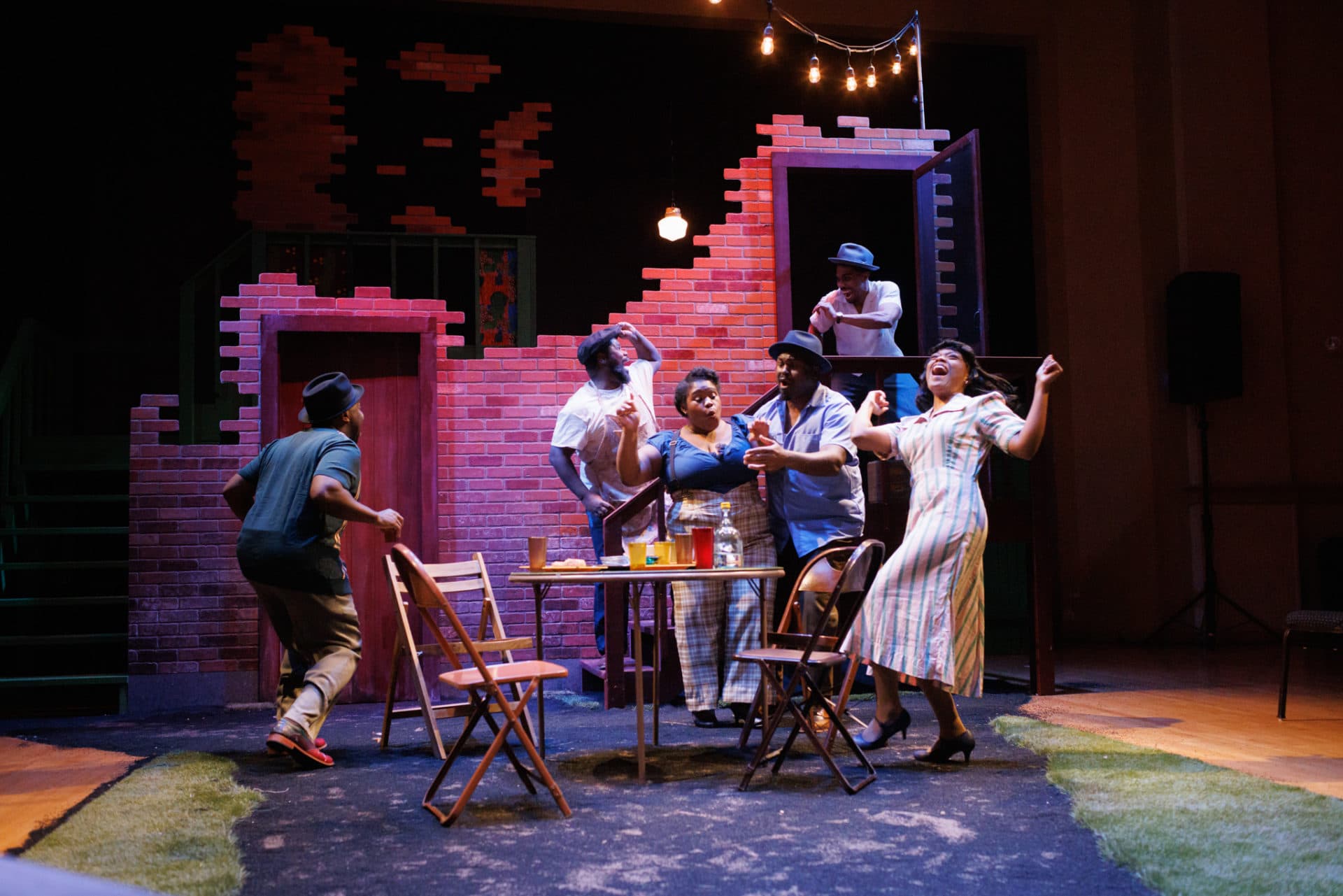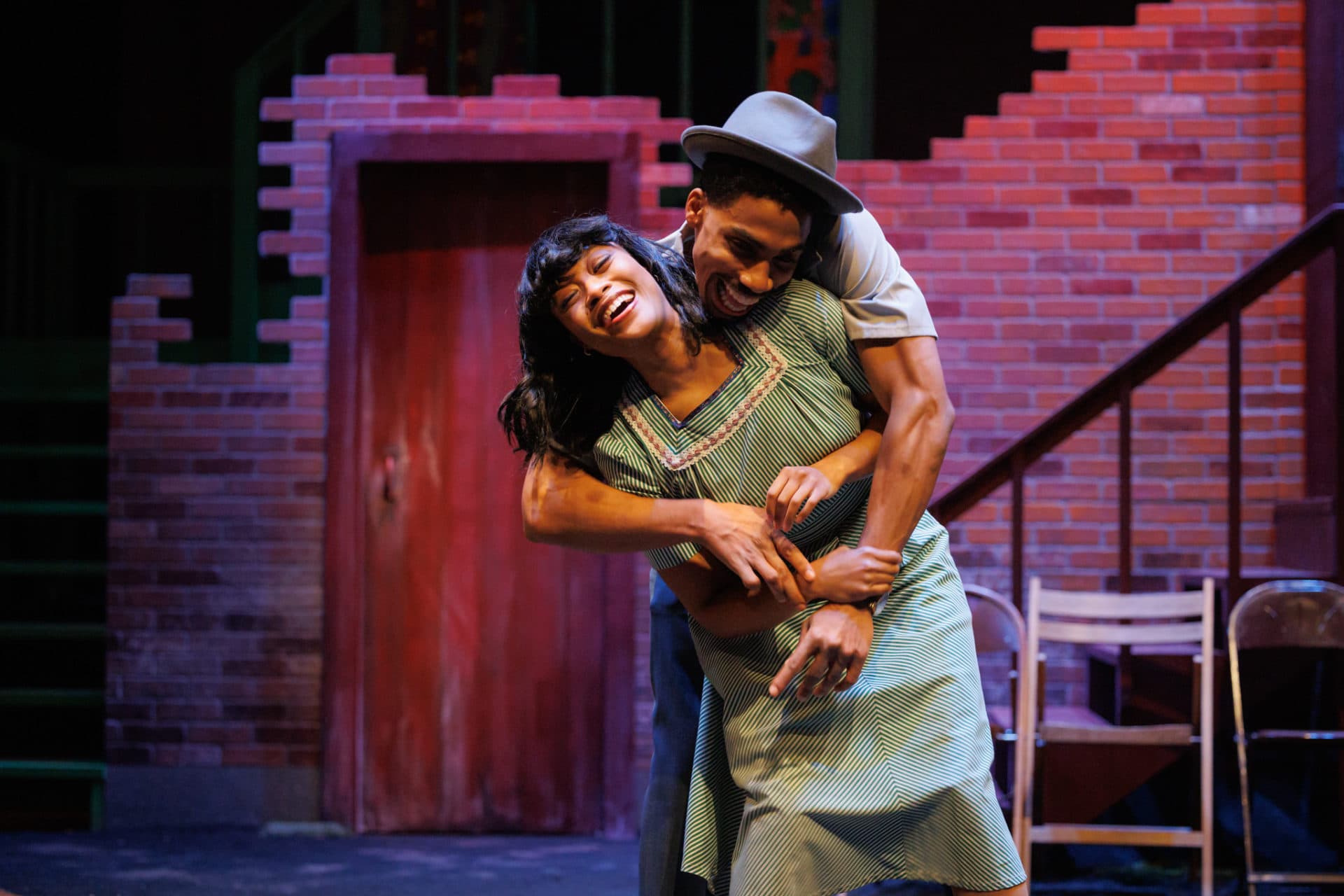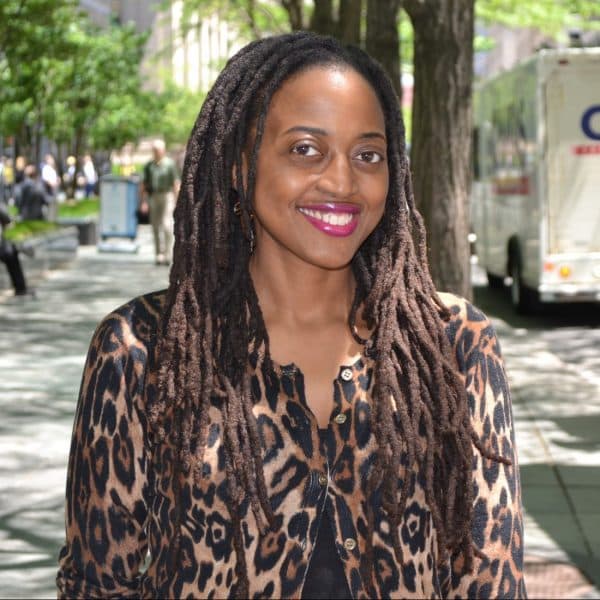Advertisement
Review
Maurice Emmanuel Parent expertly directs a terrific cast in Actors' Shakespeare Project's 'Seven Guitars'

Try me.
That’s what musician Floyd “Schoolboy” Barton tells ex-girlfriend Vera when he tries to win her back in Actors’ Shakespeare Project’s (ASP) production of August Wilson’s “Seven Guitars” (showing now through March). Barton’s pleading comes after returning home to Pittsburgh from a trip to Chicago with another woman (and a stint in the workhouse).
Fly and smooth, Barton, skillfully portrayed by Anthony T. Goss, is on a bit of a high. Though his trip to Chicago seems far from perfect, he did come home to his hit song playing on the radio. But his celebrity and electric presence still haven’t resulted in a payday. He’s also lost the forms that allow him to get paid for his labor in the workhouse or jail. Without that money, his plans to return to Chicago to record more music won’t work. On top of that, the audience learns from Barton’s musician friend Canewell who traveled to Chicago with him, that they didn’t get paid the first time.

The audience gets thrust into the backyard of a Pittsburgh neighborhood in 1948, with the partial façade of a brick building, green stairs and cityscapes on backdrops, courtesy of scenic designer Jon Savage. In this backyard, or gathering the place—likely one of few places the characters feel free—the story digs deeper into the lives of Barton and his friends before Barton’s untimely end. The narrative that details the events that precede Barton’s death is shown in flashbacks.
Life’s precariousness permeates the play through action and dialogue. Talk of work with little to no wages, struggles with the law and unrealized dreams get shared, a kind of death of its own There’s an even a conversation about how preachers eulogize the dead so well that Barton’s friend’s Red Carter says, the preacher “make it where you want to die just to have somebody talk over you like that.”
In death at least, there’s a chance to be remembered well, with all of one’s good deeds listed before a crowd. It seems that loss, whether it’s life or love, is no stranger to this group. But its pain can be felt at the table in the yard where the friends have gathered for Barton’s funeral, bourbon in hand.
Wilson’s “Seven Guitars,” a finalist for the Pulitzer Prize for drama in 1995, is part of the playwright’s Century Cycle documenting the lives of African Americans through the decades. The music-centered “Seven Guitars” that’s nestled between “The Piano Lesson” and “Fences” chronologically is rife with themes of systemic racism such as over-policing, inadequate healthcare, and the ever-elusive American dream; themes that still prevail today. In one scene, Barton angles to get Canewell to go back to Chicago, but Canewell protests. He says he got arrested up there without reason, so he’s not eager to return, and Barton points out that you can get arrested without explanation anywhere.
Advertisement

Excellent direction from Maurice Emmanuel Parent and the terrific cast help balance out the sheer weight of these injustices with a natural camaraderie, tenderness between Barton and the initially resistant Vera (Maya Carter), flirting between the charismatic Red Carter (Dereks Thomas) and hard-on-the-outside Louise (Regine Vital) and the arrival of the sultry Ruby (Valyn Lyric Turner), a family member of Louise’s. But the tragedy of Hedley (Johnnie Mack), a Caribbean man who dreams of being a “big, big man” one day, cuts deep.
For Parent, directing this show (after recently starring in another Wilson play, “Joe Turner’s Come and Gone” at the Huntington) is noteworthy. In the director’s note, Parent points out that a job with ASP sparked his move to Boston 12 years ago. Now he’s come full circle to direct such an important work.
Wilson has a knack for creating sweeping narratives with poetic language anchored by heavy truths while painstakingly showing the multiple layers—the aspirations, love, turmoil, pain and beauty—that exist in his resonant characters.
Despite the time they live in, and the crushing loss of Barton’s bright light, he and his friends laugh, play cards, fall in lust and love, live and resist in all the ways they can.
Actors’ Shakespeare Project’s “Seven Guitars” runs through March 5.
